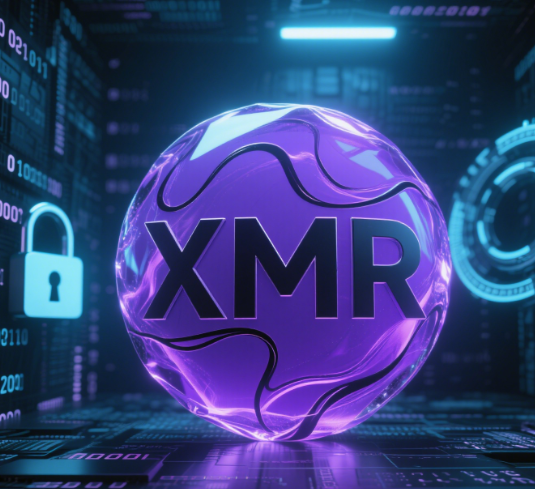XMR is the native cryptocurrency of Monero, a decentralized, privacy-focused blockchain project launched in 2014. Unlike Bitcoin or Ethereum
What Is XMR?
XMR is the native cryptocurrency of Monero, a decentralized, privacy-focused blockchain project launched in 2014. Unlike Bitcoin or Ethereum, where transaction histories are publicly visible on the blockchain, Monero offers complete anonymity through advanced cryptographic technologies such as ring signatures, stealth addresses, and confidential transactions.
These features make XMR a standout in the world of digital currencies, especially for users seeking financial privacy and security. As regulatory scrutiny around privacy grows, understanding how Monero and its native token XMR function is more important than ever.
The Core Features That Make XMR Unique
1. Privacy by Default
While other blockchains allow optional privacy (e.g., Zcash), XMR is private by default. Every transaction on the Monero network obscures sender, receiver, and amount. This makes it extremely difficult—if not impossible—for third parties to trace transactions.
2. Untraceability and Fungibility
Because XMR transactions are obfuscated, the coin is fungible—one XMR is indistinguishable from another. This is not true for Bitcoin or Ethereum, where coins can be "tainted" by association with illicit activities. Fungibility is crucial for money to retain its value in all contexts, making XMR a true digital cash equivalent.
3. Scalability and Adaptive Block Size
Monero uses a dynamic block size mechanism, unlike Bitcoin's fixed 1MB block limit. This allows the network to adjust block sizes based on demand, reducing congestion and making the network more scalable for future adoption.
4. Decentralized Mining
Monero employs RandomX, a mining algorithm optimized for CPUs. This helps decentralize mining and reduce the dominance of ASIC miners, promoting more equal participation from individual users and hobbyists.

Use Cases for XMR
XMR is often discussed in the context of darknet markets, but that narrative only scratches the surface. Here are several legitimate use cases where privacy is not only acceptable but necessary:
Personal Privacy: In countries with oppressive regimes or where financial privacy is compromised, XMR offers a lifeline.
Business Transactions: Companies may use Monero to protect trade secrets and avoid revealing sensitive financial data to competitors.
Charitable Donations: Donors can support causes without public exposure.
Hedging Against Surveillance Capitalism: In an age where data is monetized, XMR protects financial information from becoming a product.
The Regulatory Landscape
The privacy features that make XMR attractive also bring it under increased regulatory scrutiny. Some exchanges have delisted XMR due to concerns about anti-money laundering (AML) compliance. However, these moves have not stifled demand—Monero’s user base continues to grow, and several decentralized exchanges and privacy-respecting platforms still support XMR.
The debate over privacy vs. compliance will likely intensify, but Monero’s open-source community remains committed to preserving financial freedom and censorship resistance.
XMR Market Trends and Outlook
Despite regulatory headwinds, XMR remains a top 30 cryptocurrency by market cap. Its price trends tend to diverge from broader crypto sentiment, often rising during periods of political instability or increased surveillance.
Notably:
XMR has maintained a strong developer community, with frequent updates and audits.
Privacy concerns post-2020 have increased institutional awareness of privacy coins.
As CBDCs (Central Bank Digital Currencies) roll out globally, the demand for decentralized privacy tools like XMR could increase dramatically.
Analysts project that if financial privacy becomes a more mainstream concern, XMR could see significant appreciation, both in value and adoption.
How to Buy and Store XMR
XMR can be purchased on several exchanges that value privacy and decentralized principles. To store it securely:
Use official Monero wallets like GUI or CLI.
For mobile users, wallets like Cake Wallet or Monerujo are popular options.
Hardware wallets like Ledger and Trezor also support XMR via third-party interfaces.
Always verify wallet addresses and practice basic operational security (OpSec) to protect your funds.
Final Thoughts: Is XMR the Future of Private Money?
XMR is more than just a privacy coin—it’s a movement toward financial autonomy in an increasingly surveilled world. Whether you're an investor, developer, or everyday user, Monero's robust privacy guarantees offer a meaningful alternative to transparent blockchains.
As the digital economy evolves, privacy will become a central concern. In that context, XMR is poised to play a foundational role in preserving freedom and confidentiality.
Stay updated on XMR and the evolving world of privacy coins at Coin78—your trusted platform for crypto news, exchange insights, and blockchain analysis.
1. The information content does not constitute investment advice, investors should make independent decisions and bear their own risks
2. The copyright of this article belongs to the original author, and only represents the author's personal views, not the views or positions of Coin78. This article comes from news media and does not represent the views and positions of this website.
 USD
USD CNY
CNY HKD
HKD TWD
TWD VND
VND USDT
USDT